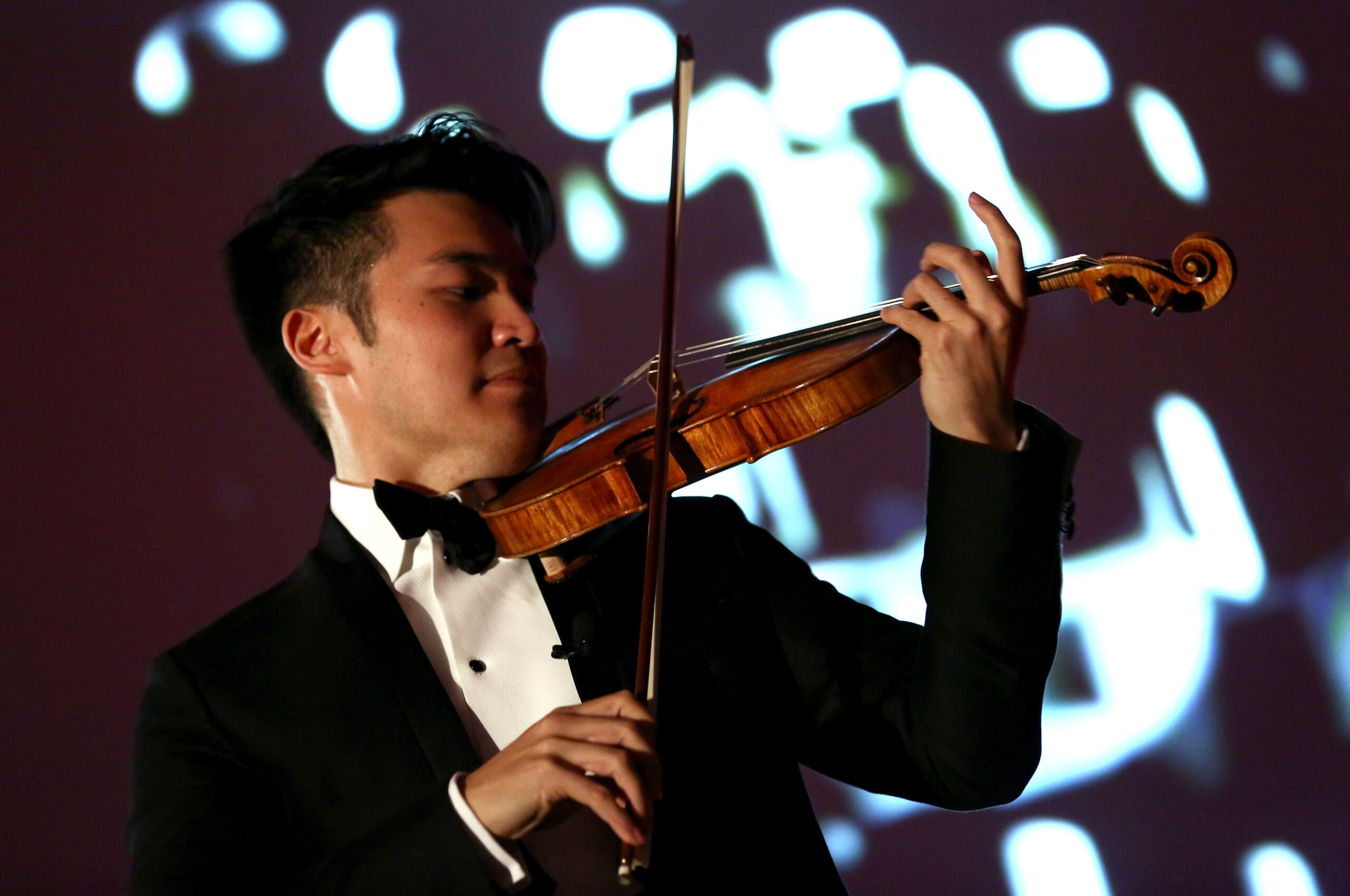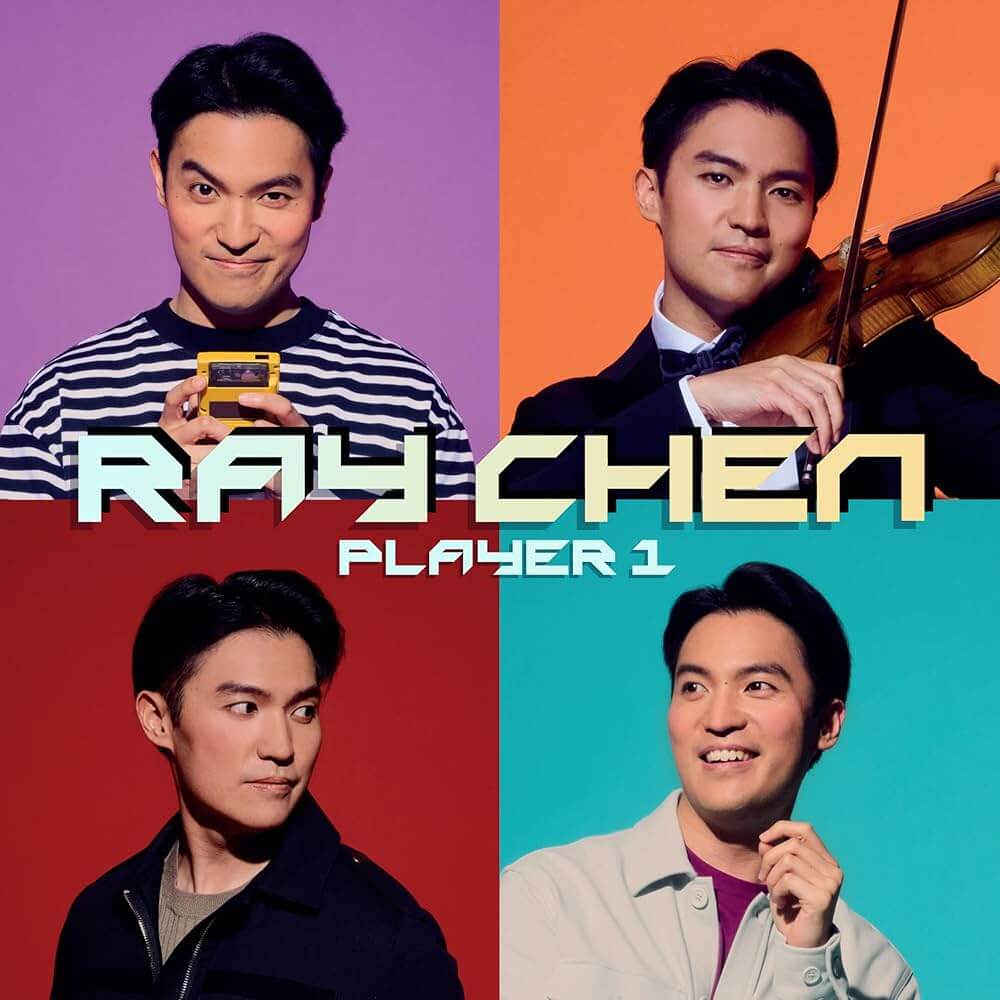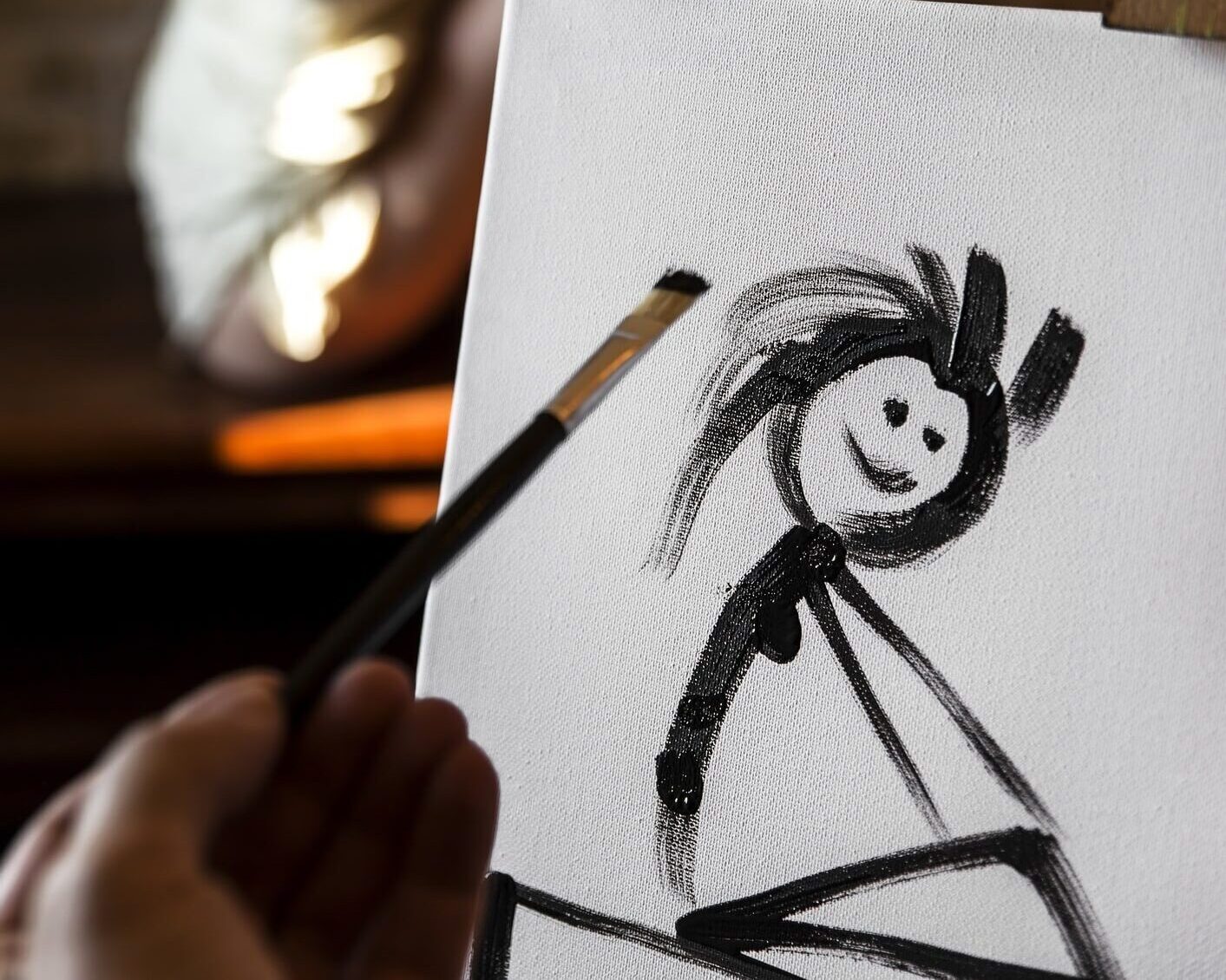It is customary for rising musical stars to begin their recording careers with the tried-and-true works of their genre. A pianist will, for instance, record Mozart and Brahms before attempting MacDowell or Tippett, and a cellist will tackle the Dvořák concerto before the Vasks. This strategy makes sense: better to solidify those crucial early albums with reliable masterworks, the logic goes, than to risk them on obscure showpieces.
To some extent, the violinist Ray Chen has followed this formula. Since winning the 2009 Queen Elisabeth Competition, he has recorded the Tchaikovsky and Mendelssohn concerti, as well as the famous Franck sonata. Yet he has also been unafraid to blaze his own trail. His first album was a recording of relatively obscure Stravinsky compositions. That was followed by Virtuoso, an album of Wieniawski and Tartini showpieces, and The Golden Age, which included famous works such as the Bruch concerto but also lesser-known tune arrangements such as Cyril Scott’s Lotus Land. Now, having arrived as an international music sensation (he has nearly a million Instagram followers and over six hundred thousand YouTube subscribers), Chen has released Player 1, a bold and innovative album that features the Korngold concerto and a fascinating set of themes from television, video games, anime, and film.
“Player 1 aims to create a meaningful connection between the past and the present,” says Chen. Hence, the album includes everything from a century-old concerto to melodies from The Legend of Zelda, How to Train Your Dragon, and Squid Game. There is plenty of nostalgia, but there is also a kind of lush, exploratory energy, a sense of fantastical adventure that pairs perfectly with Chen’s playful style. One gets the sense that Player 1 is the most personal and meaningful of Chen’s albums to date.
The Hollywood and anime arrangements are lyrical, fun, and relatable. Some of them are schmaltzy; a few of them are downright maudlin; but all of them are cinematic and romantic. And Chen’s technique—especially his characteristically wide vibrato—is tailor-made for these kinds of works. A particularly pleasant surprise was the Serenade by the contemporary composer Eunike Tanzil, who is a personal friend of Chen’s. Tanzil’s website says that her music is “characterised by lyrical melodic lines and emotive harmonic progressions.” The Serenade is exactly that: lyrical and emotive, almost ballet-like in its delicacy. A lovely selection.
But the Korngold concerto is the centerpiece of the album. I’ve always wondered, Is this an American concerto? I tend to think so, given that Korngold—an Austrian by birth and training—had been writing film scores in Hollywood for several years by the time he wrote the concerto. As such, Korngold’s violin concerto bridges continents, styles, and generations. It has the density of the German tradition, the openness of the American tradition, and all the romance of a movie score. (Korngold actually quotes from several of his movie scores in the concerto). It is, in a word, singular. And having played the piece myself, I can attest that Chen plays the concerto extremely well. His strengths are his bravado, his energy, and his charm, and he puts them to good use in this rendition. Not to mention his astounding confidence, his willingness to simply go for it in places where most other violinists would hesitate or draw back. At times, the third movement felt like Chen was racing—and narrowly beating—an avalanche down a mountainside.
Yet Chen’s performance also features his regrettable tendency to resort to portato: the technique of creating a pulsing sound by moving the bow faster, then slower, in rapid succession, or by adding pressure to the string and then releasing it (I like to call it “surge-bowing”). The result is a wavering, inconsistent sound that breaks up the melodic line. I would have liked Chen to take a page from Jascha Heifetz’s book and follow each phrase to completion, but the resurgent portato was a constant interruption. This tendency was particularly bothersome in the second movement, which has the potential to be delightfully smooth and romantic but in Chen’s hands seemed bumpy and disjointed.
On the whole, though, the album is a unique and innovative contribution, and Chen deserves credit for expanding classical music’s social and cultural reach. While I may not recommend the album on the merits of the Korngold concerto, I would certainly refer it to someone coming to classical music for the first time. Chen has publicly said that his mission is to “make classical music accessible.” If Player 1 is any indication, he appears to be succeeding.















